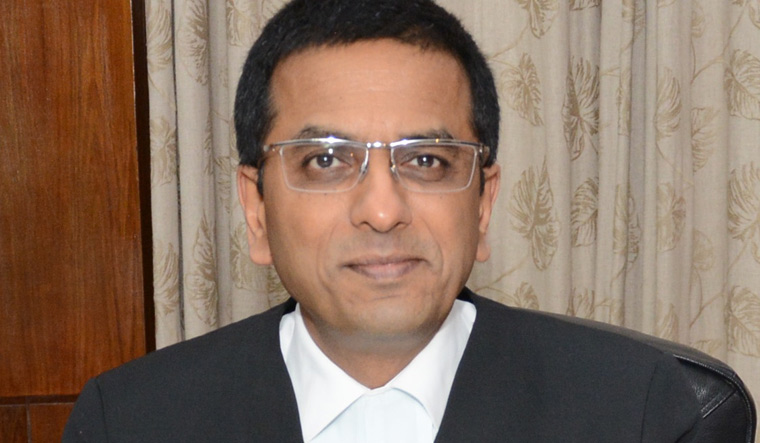The dissenting judgment of Justice D.Y. Chandrachud on Aadhaar, terming it unconstitutional and violative of fundamental rights, though a lone, minority voice on the five-judge Constitution Bench of the Supreme Court, was a powerful verdict on the unique identity scheme.
There was a remarkable buzz in the legal circles and outside of it on Chandrachud's dissenting judgment on Aadhaar, even as the court, by a 4:1 majority, upheld the Constitutional validity of the scheme.
Chandrachud, in his separate judgment on Aadhaar, used some strong words as he took a diametrically opposite stand compared to his brother judges on the bench—Chief Justice of India Dipak Misra and Justices A.K. Sikri, A.M. Khanwilkar and Ashok Bhushan. He wrote that the entire Aadhaar programme, since 2009, suffers from constitutional infirmities and violations of fundamental rights.
He further said the enactment of the Aadhaar Act does not save the Aadhaar project. “The Aadhaar Act, the Rules and Regulations framed under it, and the framework prior to the enactment of the Act are unconstitutional,” he wrote.
also read
- SC asks UGC details of action taken on caste discrimination, set up of equal opportunity cells in higher institutions
- Farmers’ protest: ‘Never intended to break Dallewal’s fast’, says SC; raps Punjab govt for misrepresenting directions
- Places of Worship Act: SC to hear AIMIM chief Asaduddin Owaisi's plea in February
- MeitY add'l secretary Bhuvnesh Kumar IAS takes over as Aadhaar authority CEO
The judge who authored a much-quoted judgment on privacy as a fundamental right last year, wrote that Aadhaar was violative of informational privacy as also data protection. “Constitutional guarantees cannot be compromised by vicissitudes of technology,” he said.
He noted that there is a risk of surveillance of people on the basis of their Aadhaar data. He said that from the verification log, it is possible to locate the places of transactions by an individual in the past five years. It is also possible through the Aadhaar database to track the current location of an individual, even without the verification log.
“The architecture of Aadhaar poses a risk of potential surveillance activities through the Aadhaar database. Any leakage in the verification log poses an additional risk of an individual's biometric data being vulnerable to unauthorised exploitation by third parties,” he wrote.
Chandrachud further said that the very passage of the Aadhaar Act as a money bill is violative of the Constitution. “Superseding the authority of the Rajya Sabha is in conflict with the constitutional scheme and the legitimacy of democratic institutions. It constitutes a fraud on the Constitution,” he said, emphatically rejecting the government's move to pass the bill in the Lok Sabha, where the ruling party has a majority, as a money bill.



